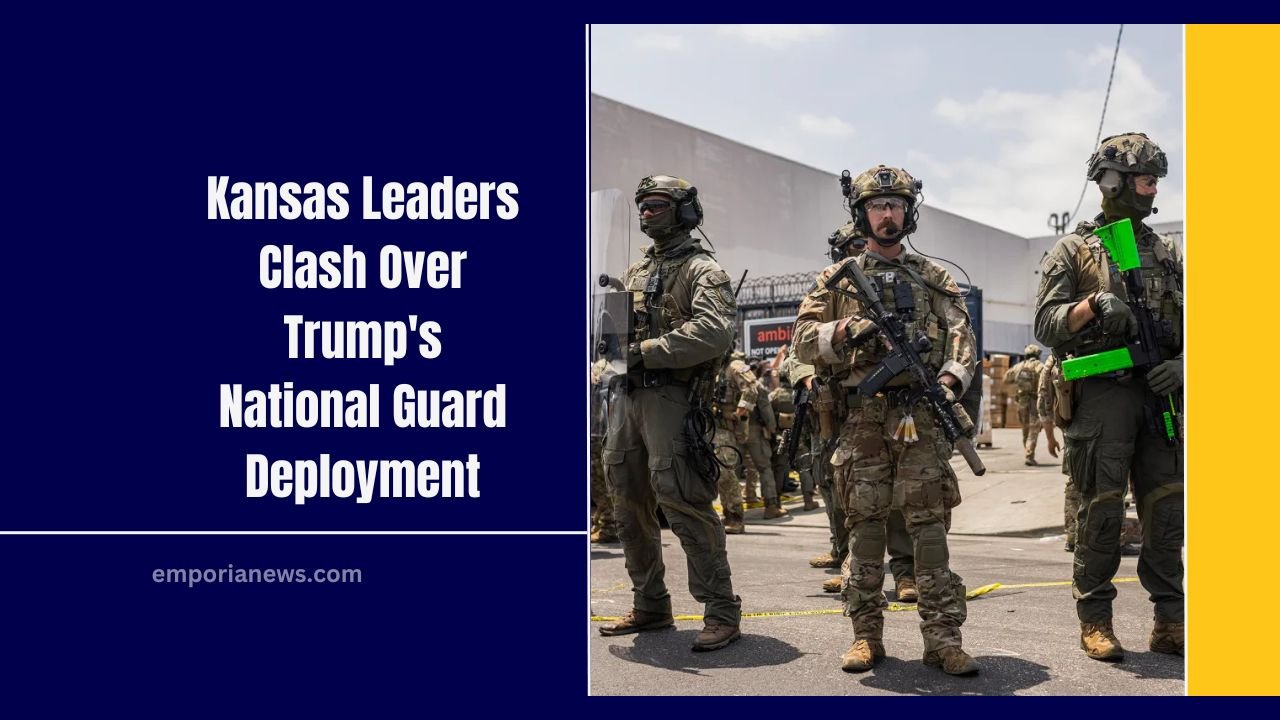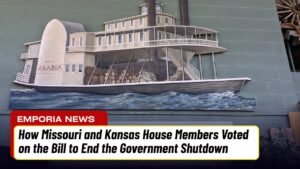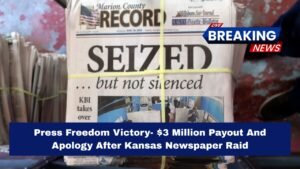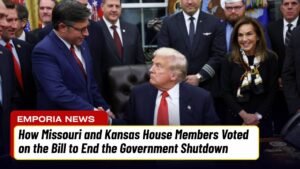The political divide in Kansas has deepened in recent weeks as state leaders react to President Donald Trump’s controversial use of the National Guard in Los Angeles.
His decision to deploy the National Guard to handle protests and riots has ignited strong reactions both in Kansas and across the country, with Democrats and Republicans taking starkly opposing stances on the matter.
Background of the Situation
President Trump’s crackdown on protests and civil unrest in Los Angeles has become a flashpoint for political tensions nationwide.
As protests against Immigration and Customs Enforcement (ICE) raids continue to escalate in California, Trump’s use of the National Guard has been seen by some as a necessary step to restore order.
However, for others, the move represents an overreach of federal power, undermining state sovereignty.
Kansas Governor Laura Kelly, a Democrat, has been outspoken in her opposition to Trump’s actions.
On June 12, 2025, she joined a group of 20 other state leaders in filing an amicus brief to support California’s request for a court order to block the federal deployment of the National Guard. Governor Kelly emphasized the importance of respecting states’ rights, citing the U.S. Constitution, which provides that the National Guard should be under the control of state governors unless the federal government coordinates with the state.
Governor Kelly’s Stand
In her press release, Governor Kelly stressed the importance of respecting state sovereignty, arguing that President Trump’s unilateral decision to deploy the National Guard in California violates these rights. “The United States of America is founded on the rule of law, including respect for states’ rights,” Kelly stated.
She warned that such actions could set a dangerous precedent, undermining the constitutional rights of citizens across the nation.
Her position is rooted in the belief that the National Guard, while a critical asset for managing crises, should remain under the authority of the state’s elected officials unless there is full coordination with the state.
Kelly’s objections reflect the broader Democratic concern about federal overreach and the implications it could have for governance at the state level.
Attorney General Kris Kobach’s Support for Trump
On the other side of the political spectrum, Kansas Attorney General Kris Kobach, a Republican, has taken to social media to publicly support President Trump’s actions.
On June 11, Kobach issued a statement emphasizing his belief that lawlessness should not be tolerated, especially when it comes to violent protests.
In his post, Kobach argued, “We will always defend the right to peacefully protest, but there’s nothing peaceful about arson, assault, and anarchy.”
He framed the protests in Los Angeles, which have included incidents of violence and looting, as a failure of local leadership. Kobach believes that when local and state authorities fail to act, the federal government has a duty to step in.
Kobach’s comments reflect the Republican stance that maintaining law and order often requires federal intervention, especially when local authorities are seen as ineffective.
He expressed support for Trump’s deployment of the National Guard as a necessary response to curb the violent elements of the protests.
According to Kobach, the federal government must act when states and local governments are unable or unwilling to address lawlessness.
Reactions from Kansas Political Leaders
| Political Leader | Position on Trump’s National Guard Use | Key Arguments |
|---|---|---|
| Governor Laura Kelly | Opposes Trump’s use of National Guard | Advocates for state sovereignty and protection of constitutional rights |
| Attorney General Kris Kobach | Supports Trump’s use of National Guard | Emphasizes the need for federal action to maintain law and order |
| Kansas Democratic Leaders | Oppose Trump’s federal intervention | Concerned about overreach of federal power and undermining states’ rights |
| Kansas Republican Leaders | Support Trump’s actions | Defend the need for federal intervention to control chaos |
Protests and Growing Tensions
The protests in Los Angeles, which have been largely in response to the federal actions against illegal immigration, have led to numerous arrests.
Many of the protests have been centered around ICE raids, with demonstrators voicing their opposition to the Trump administration’s hardline policies on immigration. As a result, the political climate in Kansas and across the country has become increasingly polarized.
Kansas, while geographically distant from California, has not been immune to the political and social reverberations of the events in Los Angeles.
Protests are being planned across the nation, including one in Topeka on June 14, coinciding with the Army’s 250th anniversary parade in Washington, D.C.
As the political divide continues to intensify, it remains to be seen how Kansas’ lawmakers will further navigate this contentious issue.
The divide in Kansas over President Trump’s use of the National Guard highlights the broader national debate on federalism, states’ rights, and law enforcement.
As political leaders take opposite stances on this issue, Kansas remains a battleground for differing ideologies about the balance of power between state and federal authorities. As tensions rise, the consequences of these political decisions will be felt well beyond the state.




